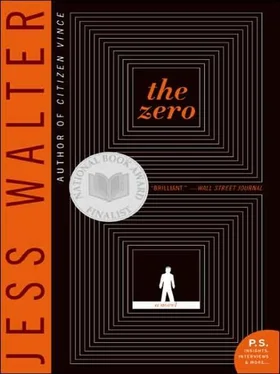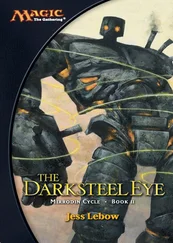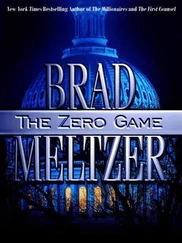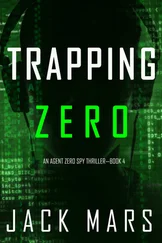As Remy neared the bottom of the stairs, on the dark final landing, the crowd thinned until it was only stragglers, subway workers and a homeless woman playing a saxophone that looked like it had been in a hailstorm. She held her hand open for money, even as she was evacuated, and Remy managed to slip her a dollar as they brushed past one another. Her hand was rough and calloused. “Bless you,” she whispered, and when she had the money, “ass munch.”
There were smells he associated with newsstands and subway maps, although Remy wondered how these things in themselves could stink. As he descended, though, for just a moment the atmosphere of the subway replaced the acrid flour of The Zero, and he breathed in the burning brakes, roasted chestnuts, and spilled coffee as if it were a beautiful garden.
The subway cages were empty; Remy had no tokens, but found an open gate. A nervous transit officer, a fat cave cop, was standing on the platform, shifting his considerable weight on black shoes, breathing through a paper surgical mask. He removed the mask and spoke without inhaling. “You the expert?”
“Why not,” Remy said.
“Over ’dere,” the cave cop said, replacing the mask. Remy looked down the line to a small staging area, where two other cave cops were putting up police tape while two space-suited agents stood nearby, taking photographs of a backpack leaned against a pillar. White powder appeared to have spilled out from the backpack. “Civilian spotted it. Twelve minutes ago.” The cave cop quickly replaced his mask again. He reached in his pocket and held out a paper mask for Remy, who ignored it, looking back toward the white powder.
“Maybe this is what it feels like to be a soldier,” Remy said. “That you just move forward because if you stop to think about the context, what it all means, you’ll just go crazy.”
“What are you talking about?” the subway cop asked through his mask.
“Nothing.” Remy walked toward the backpack.
As he got closer, the guys in the space suits approached him. There was a click and a voice came from somewhere in the left suit. “You must be the guy Documentation sent.”
“I must be,” Remy said.
The space suit nodded. “Stupid question. Sorry.” He winked. “We found some papers in the bag, near the USUM.”
“USUM?” Remy asked.
“Unidentified suspicious materials,” said the other space suit. “There was some cryptic writing in the papers; we think it might be a manifesto of some kind, so they said we had to call you guys in.”
“Manifesto,” the other agent agreed.
Remy stepped between the agents and toward the backpack.
“Hey! What are you doing? Shouldn’t you wait for… someone?” one of the space suits called after him.
Remy said, “I am someone.”
As he got closer, he could see the white powder piled on the ground next to the backpack. He bent down, dipped his finger in the powder, and put it on his tongue.
“Jesus! What are you doing?” the space suit asked.
“Creamer,” Remy said, surprised at the disappointment in his own voice. He could hear sirens on the street above. “French vanilla.” He hoisted the backpack and dumped it out on the platform. He poked through the remains: a spiral binder, a bagel in cellophane, a circular birth control pill dispenser, a pack of cigarettes, some matches, and a report on a book: In the Labyrinth . Remy read the report. She didn’t like the book very much. She said it was too diffuse, too hard to follow. He opened the binder. The girl’s name, Ailea Mendez, was in the upper right-hand corner, along with a phone number. He carefully put Ailea Mendez’s manifesto back in the backpack, then straightened and walked over to-
THE MAN was a lawyer, a good one, if Remy had to guess. He wore a dark suit and tassled loafers, and there was something in the way he leaned his big-assed slacks across the conference table – like a kid showing off a new car to buddies – using a pointer to gesture at the PowerPoint presentation on the wall, a blue screen with red letters that promised to lay out the basic facts of “Applying for Federal Victims Compensation.”
April was sitting in the chair next to Remy, holding his hand and practically crushing his knuckles in her sweaty fist. She was wearing a white lace sweater buttoned once over a plain shirt and Remy imagined that perhaps that one button was the only thing keeping her from coming apart. She breathed in fits and starts.
The PowerPoint screen: 1. Survivor/victim agrees to drop any claim against airline, city, federal government, etc…
“And you’re sure about this part-” the lawyer began.
“Yes,” April said quickly. “I think so.”
“Good,” said the lawyer, “because that’s the first step. It’s probably going to be close to ninety-eight percent of victims by the end. So… you’re in good company.” The lawyer smiled with his big picket teeth and clicked to the next screen: 2. Pain and Mental Anguish: a quantifying formula .
A noise escaped April that was like something between a grunt and a sigh, as if the air had been knocked out of her. She tried to pretend she was clearing her throat. Remy took her hand.
“Everyone starts with a base of two-fifty,” said the lawyer. He stuck his jaw out and rubbed the right side of his neck, which was covered with a purplish shaving rash the size of a tangerine. “For pain and mental anguish. That’s what the guidelines have determined each life is worth, essentially, at a base level of grieving. Now if we get to the appeal process, we could always plead some special circumstance, but in your case, given the recent estrangement between you and the decedent, we’re probably better off taking the two hundred fifty thousand and not opening up that can of worms.” He stroked the rash on his neck tenderly.
“There is one issue we need to discuss,” the lawyer said. “And it’s going to be difficult, but it’s necessary. And understand: I have to ask. Is there any chance… someone else… might step forward to make a claim?”
“Oh.” April’s hand began shaking a little. “Do Derek’s parents want the money? Because I wanted to-”
“No. No. Not his parents. That’s not what I mean. They could challenge, of course, but since Derek left no will, this falls under the state’s intestacy laws, which reward the entire estate to the spouse, and therefore the entire settlement is yours.”
“Even though we weren’t together?”
“Estrangement is not the same as divorce. You could have gotten back together.”
“We wouldn’t have,” April said quickly.
“I understand your feelings, but if I may… you don’t know that. Mr. Kraft’s mother and stepfather certainly don’t know that. And the hearing examiner and special master can only follow the Compensation Fund rules, which clearly stipulate that the spouse is entitled to full compensation for pain and suffering. Now, the parents can appeal some aspects of pecuniary loss, especially if the decedent was supporting them or contributing to their income. But no, when I asked if someone else might make a claim what I was talking about was a… woman, a girlfriend…”
“Oh.” April looked down at her shoes. “There was someone,” she said quietly. She glanced up at Remy, and then looked back down.
“A woman,” the lawyer said, not a question.
“Yes.”
The lawyer turned his body a bit and stopped stroking his rash. Remy thought he seemed… titillated. “Do you think she’ll make a claim?”
“No,” April said.
“I understand this is difficult, but I need you to tell me about their relationship just in case some children miraculously appear, or some document in which he agreed to-”
Читать дальше












